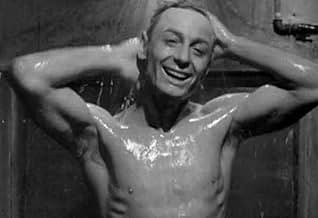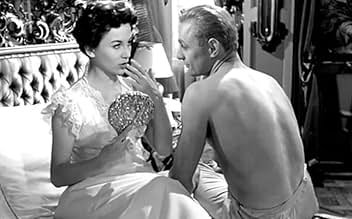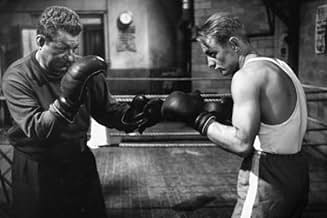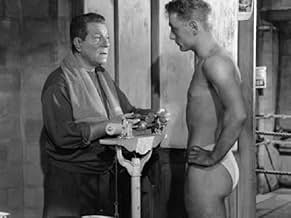Following his break with Jacques Prévert, the post-war films of Marcel Carné, with the notable exception of 'Les Tricheurs', were to receive a decidedly mixed response and he was pretty well written off by the New Ripple brigade. The original screenplay for his masterpiece of Poetic Realism 'Le Jour se leve' was written by Jacques Viot whose novel 'La Choute' has here been adapted by another Jacques, this time Jacques Sigurd.
Carné has called upon his tried and trusted team of cinematographer Roger Hubert, composer Maurice Thiriet and editor Henri Rust whose editing of the film's only boxing scene is exceptional. He has also reunited Jean Gabin and Arletty, both of whom enrich every film in which they appear. The younger generation is represented by Carné's 'protegé' Roland Lesaffre, as an aspiring boxer who punches above his weight when falling for the society girl of Marie Daems. Theirs is a relationship that cannot last and although neither Monsieur Lesaffre nor Mlle Daems were destined to set the screen alight, they convince here under Carné's sensitive direction. Some might detect in the amitié between Victor and André an element of homophilia but that of course is down to the individual viewer.
Arletty's fall from grace as a result of 'horizontal collaboration' during the Occupation has been well documented but her no-nonsense style of acting never ceased to impress, whatever the material. Gabin as an ex-boxer, complete with cauliflower ears, makes the role his own and is simply one of the 'truest' actors ever to walk on to a sound stage.
Compared to other films based around the Ring, this one is lightweight to be sure but in its own quiet way, still packs a punch.
Carné, a director of finesse and innate humanity, remained philosophical about his negative reviews. "I always run the risk of falling on my face, which has in fact happened."




























